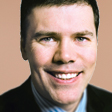5 Ways to Vet a Fund
Here's how to identify the most important information

Profit and prosper with the best of Kiplinger's advice on investing, taxes, retirement, personal finance and much more. Delivered daily. Enter your email in the box and click Sign Me Up.
You are now subscribed
Your newsletter sign-up was successful
Want to add more newsletters?
It's easy to overdose on data when choosing funds. Numbers can be interesting, but only a few really help you make good selections. Unfortunately, many investors have a hard time figuring out which stats to use and, all too often, make the mistake of leaning too heavily on a fund's returns over the past year. My new book, Fund Spy (Wiley, $24.95), is designed to help you identify the most important information. Here are some things you should look at:
Expense ratio. This one's simple: You improve your odds of success by investing in funds with low fees. Over a ten-year span, stock funds whose annual expense ratios are among the lowest 20% in their categories are 40% more likely to outpace those in the second-cheapest quintile. And the least-expensive funds are more than twice as likely to outperform those with expenses in the highest 20% of their categories.
Stewardship. Some funds watch out for shareholder interests, and others treat investors as if they were second-class citizens. For instance, some sponsors will keep a fund open to new clients even though existing shareholders would be better served if the fund closed. Over a lengthy holding period, a fund company will have many opportunities to choose between maximizing profits and protecting shareholders. I want the good guys on my side. Steer clear of funds with Morningstar stewardship grades of D or F.
From just $107.88 $24.99 for Kiplinger Personal Finance
Become a smarter, better informed investor. Subscribe from just $107.88 $24.99, plus get up to 4 Special Issues

Sign up for Kiplinger’s Free Newsletters
Profit and prosper with the best of expert advice on investing, taxes, retirement, personal finance and more - straight to your e-mail.
Profit and prosper with the best of expert advice - straight to your e-mail.
Risk. Most investors are better off avoiding high-risk funds. That's because it's tough to stay put when a highly volatile fund gets whacked, even though holding steady might be the right course of action. Morningstar's risk rating gives you a quick assessment of how dangerous a fund could be.
The bear market that ended (I hope) on March 9 also provides a very real measure of funds' risks. Check how a fund fared in 2008, during which the stock market tumbled 37%. In fact, before you buy a fund, look back over at least ten years' worth of returns to see how it fared in different climates. This should enable you to set realistic expectations and prepare you better for potential losses. But you should also ponder how you handled losses during the bear market. If you couldn't stand the pain in certain funds and unloaded them, then look for more-conservative investments.
Manager stake. In 2005, regulators started requiring managers to disclose how much of their own money they had invested in their funds. But that information is buried in the mountains of paperwork that funds must file, and few investors have the time, patience and inclination to ferret it out. Fortunately, we've loaded the data into our computers at Morningstar.
It makes sense to follow the lead of insiders. After all, who knows a fund better? It turns out that fund managers are all over the place when it comes to putting their money where yours is. Most don't have a dime in their funds, yet hundreds have more than $1 million invested. Consider a fund only if at least one of its managers has $500,000 or more invested in it. (The rule does not apply to money-market funds, but it does to just about every other category.)
To see how your fund rates on the criteria described above, take the Spy Selector test.
Management quality. The final step -- identifying good managers who employ sound strategies -- is the subjective part of the process. You can learn a lot from fund shareholder reports, and from reports at Morningstar.com, Kiplinger's and other sources. In Fund Spy, I identify the great fund com-panies and the also-rans. I also describe 20 great funds that pass my tests. Among them are Harbor Bond, T. Rowe Price Small-Cap Value and Dodge & Cox International Stock, all members of the Kiplinger 25.
Columnist Russel Kinnel is director of mutual fund research for Morningstar and editor of its monthly FundInvestor newsletter.
Profit and prosper with the best of Kiplinger's advice on investing, taxes, retirement, personal finance and much more. Delivered daily. Enter your email in the box and click Sign Me Up.

-
 Timeless Trips for Solo Travelers
Timeless Trips for Solo TravelersHow to find a getaway that suits your style.
-
 A Top Vanguard ETF Pick Outperforms on International Strength
A Top Vanguard ETF Pick Outperforms on International StrengthA weakening dollar and lower interest rates lifted international stocks, which was good news for one of our favorite exchange-traded funds.
-
 Is There Such a Thing As a Safe Stock? 17 Safe-Enough Ideas
Is There Such a Thing As a Safe Stock? 17 Safe-Enough IdeasNo stock is completely safe, but we can make educated guesses about which ones are likely to provide smooth sailing.
-
 Best Banks for High-Net-Worth Clients
Best Banks for High-Net-Worth Clientswealth management These banks welcome customers who keep high balances in deposit and investment accounts, showering them with fee breaks and access to financial-planning services.
-
 Stock Market Holidays in 2026: NYSE, NASDAQ and Wall Street Holidays
Stock Market Holidays in 2026: NYSE, NASDAQ and Wall Street HolidaysMarkets When are the stock market holidays? Here, we look at which days the NYSE, Nasdaq and bond markets are off in 2026.
-
 Stock Market Trading Hours: What Time Is the Stock Market Open Today?
Stock Market Trading Hours: What Time Is the Stock Market Open Today?Markets When does the market open? While the stock market has regular hours, trading doesn't necessarily stop when the major exchanges close.
-
 Bogleheads Stay the Course
Bogleheads Stay the CourseBears and market volatility don’t scare these die-hard Vanguard investors.
-
 The Current I-Bond Rate Is Mildly Attractive. Here's Why.
The Current I-Bond Rate Is Mildly Attractive. Here's Why.Investing for Income The current I-bond rate is active until April 2026 and presents an attractive value, if not as attractive as in the recent past.
-
 What Are I-Bonds? Inflation Made Them Popular. What Now?
What Are I-Bonds? Inflation Made Them Popular. What Now?savings bonds Inflation has made Series I savings bonds, known as I-bonds, enormously popular with risk-averse investors. How do they work?
-
 This New Sustainable ETF’s Pitch? Give Back Profits.
This New Sustainable ETF’s Pitch? Give Back Profits.investing Newday’s ETF partners with UNICEF and other groups.
-
 As the Market Falls, New Retirees Need a Plan
As the Market Falls, New Retirees Need a Planretirement If you’re in the early stages of your retirement, you’re likely in a rough spot watching your portfolio shrink. We have some strategies to make the best of things.